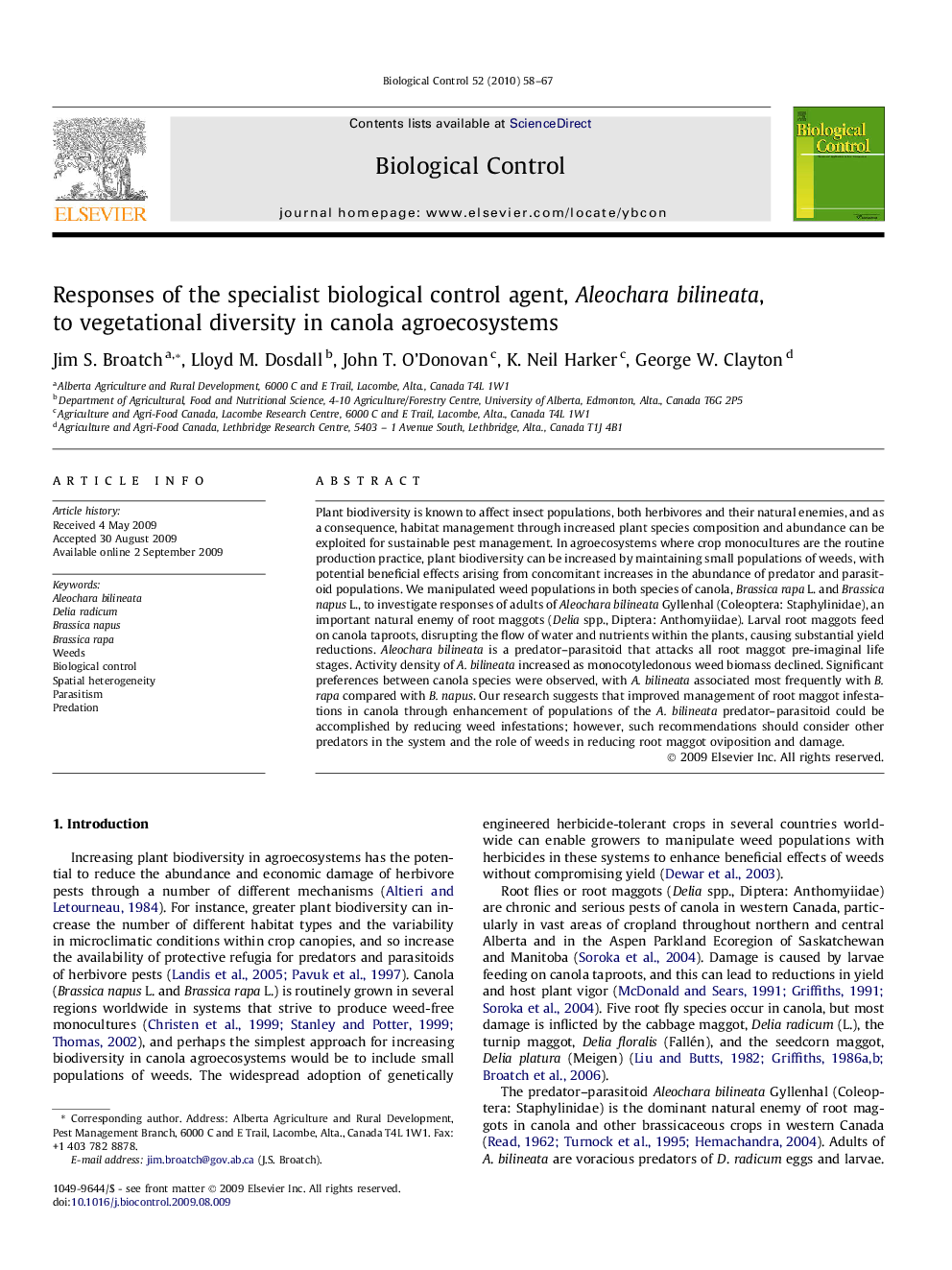| Article ID | Journal | Published Year | Pages | File Type |
|---|---|---|---|---|
| 4504625 | Biological Control | 2010 | 10 Pages |
Plant biodiversity is known to affect insect populations, both herbivores and their natural enemies, and as a consequence, habitat management through increased plant species composition and abundance can be exploited for sustainable pest management. In agroecosystems where crop monocultures are the routine production practice, plant biodiversity can be increased by maintaining small populations of weeds, with potential beneficial effects arising from concomitant increases in the abundance of predator and parasitoid populations. We manipulated weed populations in both species of canola, Brassica rapa L. and Brassica napus L., to investigate responses of adults of Aleochara bilineata Gyllenhal (Coleoptera: Staphylinidae), an important natural enemy of root maggots (Delia spp., Diptera: Anthomyiidae). Larval root maggots feed on canola taproots, disrupting the flow of water and nutrients within the plants, causing substantial yield reductions. Aleochara bilineata is a predator–parasitoid that attacks all root maggot pre-imaginal life stages. Activity density of A. bilineata increased as monocotyledonous weed biomass declined. Significant preferences between canola species were observed, with A. bilineata associated most frequently with B. rapa compared with B. napus. Our research suggests that improved management of root maggot infestations in canola through enhancement of populations of the A. bilineata predator–parasitoid could be accomplished by reducing weed infestations; however, such recommendations should consider other predators in the system and the role of weeds in reducing root maggot oviposition and damage.
